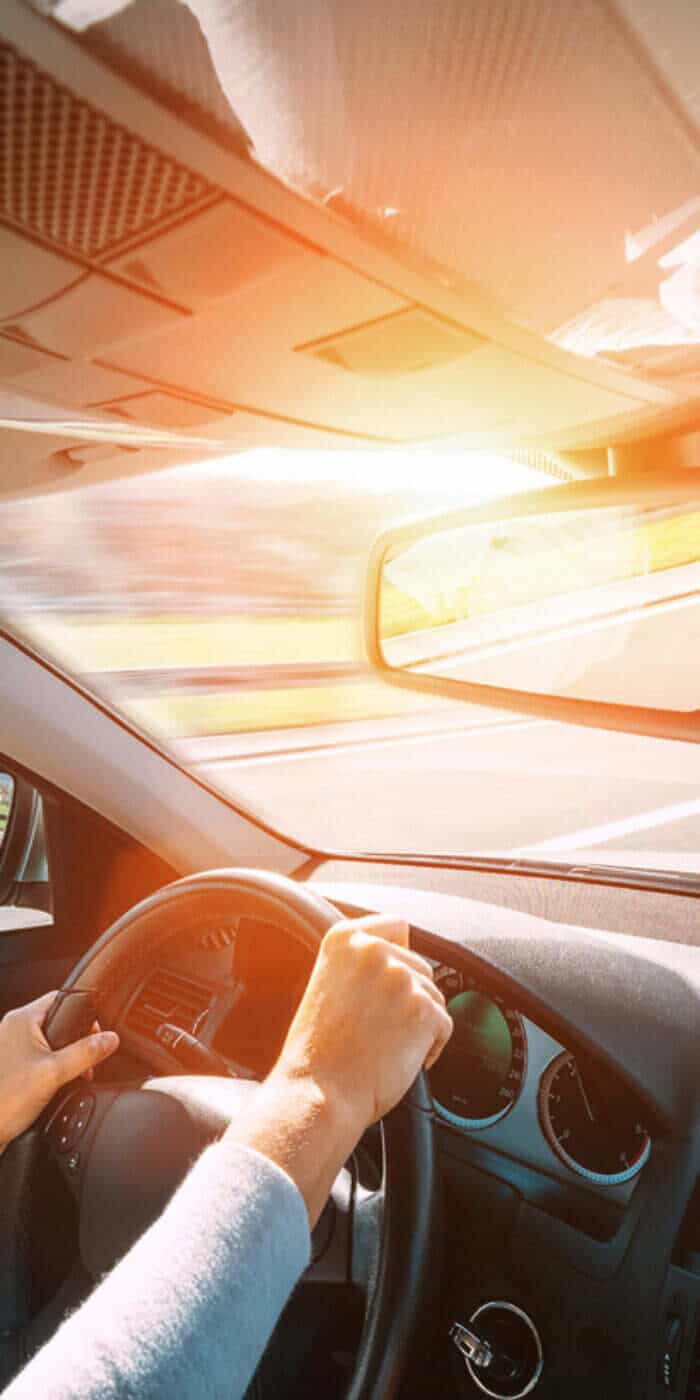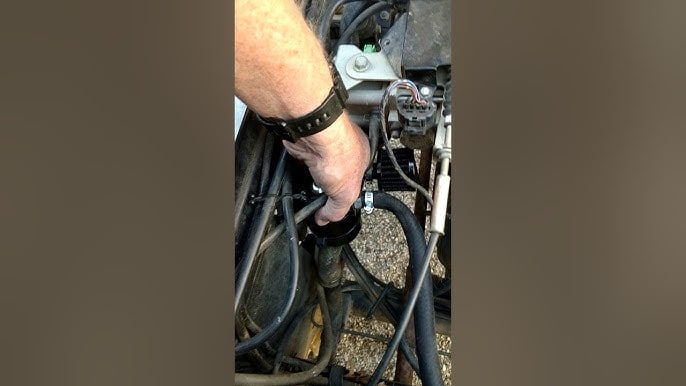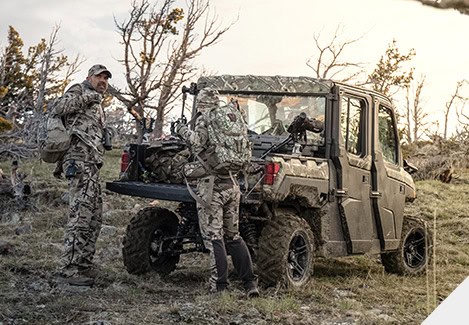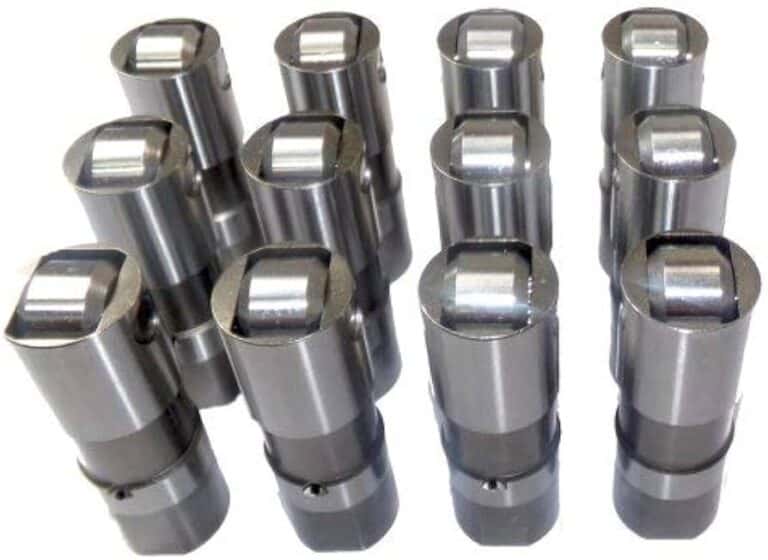Trailer Towing Tips: Maximize Safety and Efficiency!
Trailer towing involves pulling a trailer with a vehicle, such as a car, truck, or SUV. It requires proper equipment and knowledge to ensure safety.
Trailer towing can be essential for camping trips, moving, or transporting large items. Understanding the towing capacity of your vehicle is crucial. Overloading can lead to dangerous driving conditions and potential damage. Ensure your hitch and towing equipment are rated for your trailer’s weight.
Regularly inspect tires, brakes, and lights for functionality. Practice driving with the trailer before hitting the road. This includes turning, reversing, and braking. Following these tips will help ensure a safe and successful towing experience. Always refer to your vehicle’s manual for specific towing guidelines. Proper preparation and maintenance are key to hassle-free trailer towing.
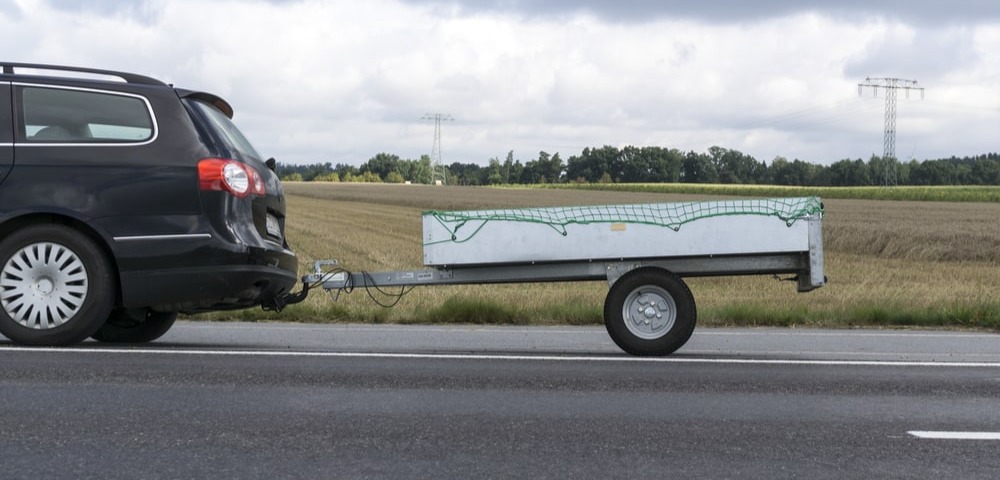
Credit: www.trailertek.com
The Basics Of Trailer Towing
Trailer towing can seem complex, but understanding the basics makes it easier. Learning the basics of trailer towing ensures a safe and enjoyable experience. This guide covers essential topics like the types of trailers and the towing equipment needed. Whether you’re a beginner or need a refresher, this information will help you tow with confidence.
Types Of Trailers
There are several types of trailers, each serving different purposes. Choosing the right trailer depends on what you need to tow.
Utility Trailers: These are versatile and can carry various loads. They are ideal for moving furniture, appliances, or yard waste.
- Small and lightweight
- Open or enclosed options
- Single or double axle
Boat Trailers: Specifically designed for transporting boats. Boat trailers have special supports and rollers to keep the boat secure.
- Corrosion-resistant materials
- Adjustable supports
- Submersible lights
Camper Trailers: Perfect for camping trips. Camper trailers provide sleeping quarters and sometimes a small kitchen.
- Various sizes available
- Pop-up or hard-sided
- Equipped with amenities
Car Trailers: Designed to transport vehicles. Car trailers come with ramps for easy loading and unloading.
- Flatbed design
- Secure tie-down points
- Heavy-duty construction
Towing Equipment
Having the right towing equipment is crucial for a safe towing experience. Different equipment types serve different needs.
Hitches: The hitch connects the trailer to the towing vehicle. There are several types of hitches:
- Receiver Hitch: A basic hitch that fits into the vehicle’s frame.
- Gooseneck Hitch: For heavy loads, installed in the truck bed.
- Fifth Wheel Hitch: Also for heavy loads, provides better stability.
Brake Controllers: These devices control the trailer’s brakes. Brake controllers are essential for heavy trailers.
- Electric brake controller
- Proportional brake controller
- Time-delayed brake controller
Weight Distribution Systems: These systems distribute the trailer’s weight evenly. Weight distribution systems help prevent swaying and ensure a smoother ride.
- Spring bars
- Sway control devices
Safety Chains: Safety chains provide a backup connection. Safety chains are a must for all trailer setups.
- Crossed under the hitch
- Rated for the trailer’s weight
Understanding Weight Limits
Trailer towing can be an exciting adventure, but understanding weight limits is crucial for a safe journey. Knowing your weight limits ensures your vehicle and trailer work well together. This guide will help you understand the key factors of trailer towing weight limits.
Trailer Weight Ratings
Trailer weight ratings are important for every towing enthusiast. These ratings help you know how much weight your trailer can safely carry. Here are the main weight ratings to consider:
- Gross Trailer Weight (GTW): The total weight of the trailer and its contents.
- Trailer Gross Vehicle Weight Rating (GVWR): The maximum allowable weight of the trailer, including its cargo.
- Trailer Tongue Weight: The weight that the trailer exerts on the hitch ball.
Manufacturers provide these ratings to help you avoid overloading your trailer. Overloading can cause accidents and damage your vehicle. Always check your trailer’s manual for its weight ratings.
| Rating Type | Description |
|---|---|
| GTW | Total weight of the trailer and contents |
| GVWR | Maximum allowable weight of the trailer and cargo |
| Tongue Weight | Weight exerted on the hitch ball |
Use a scale to measure your trailer’s weight. Ensure the GTW and GVWR are within safe limits. Knowing these ratings helps you tow safely and effectively.
Vehicle Towing Capacity
Vehicle towing capacity determines how much weight your vehicle can tow. This capacity is set by the vehicle manufacturer. Exceeding it can cause serious damage to your vehicle.
Here are the key factors that affect towing capacity:
- Engine power: A stronger engine can tow more weight.
- Transmission: Automatic transmissions usually handle towing better.
- Braking system: Good brakes are crucial for stopping a heavy load.
- Suspension: A sturdy suspension supports the extra weight.
Check your vehicle’s manual to find its towing capacity. Some vehicles have different capacities based on the towing setup. For example, a truck with a fifth-wheel hitch may tow more than a bumper hitch.
| Factor | Impact on Towing Capacity |
|---|---|
| Engine Power | Higher power increases towing capacity |
| Transmission | Automatic transmissions are typically better for towing |
| Braking System | Better brakes improve towing safety |
| Suspension | Sturdy suspensions support more weight |
Use this information to ensure your vehicle can handle your trailer’s weight. Properly matching your vehicle and trailer ensures a safe and enjoyable towing experience.
Safety Precautions
Towing a trailer can be a challenging task, but taking the right safety precautions ensures a smooth and secure journey. Safety should always be your top priority when towing a trailer. This guide covers essential safety measures, focusing on proper hitching and braking systems. Follow these tips to make your towing experience safe and enjoyable.
Proper Hitching
Proper hitching is crucial for a safe towing experience. Incorrect hitching can lead to accidents and damage to both your vehicle and trailer. Follow these steps to ensure your trailer is hitched correctly:
- Check the hitch weight: Ensure the trailer’s tongue weight is within the recommended range for your vehicle. Too much weight can cause the rear of your vehicle to sag, while too little weight can make the trailer sway.
- Inspect the hitch components: Check the hitch ball, coupler, and safety chains for wear and damage. Replace any damaged parts before hitching.
- Align the hitch ball and coupler: Position your vehicle so the hitch ball is directly under the trailer coupler. Lower the coupler onto the hitch ball and secure it with a locking pin.
- Attach safety chains: Cross the safety chains under the coupler and attach them to the vehicle’s hitch. This creates a cradle that can catch the trailer if it disconnects from the hitch ball.
- Check the electrical connections: Plug in the trailer’s electrical connector and test the lights and brakes. Ensure all connections are secure and functioning properly.
Following these steps will help you hitch your trailer safely and prevent accidents on the road.
Braking Systems
Braking systems play a vital role in trailer towing safety. A good braking system ensures you can stop your trailer quickly and safely. Here are some important aspects to consider:
- Trailer brakes: Many trailers come with built-in brakes. Check the manufacturer’s guidelines to see if your trailer has electric or hydraulic brakes.
- Brake controller: An electric brake controller in your vehicle allows you to control the trailer’s brakes. Adjust the brake controller settings to match your trailer’s weight and load.
- Emergency breakaway system: This system activates the trailer’s brakes if it becomes disconnected from your vehicle. Check the breakaway switch and battery regularly to ensure they are functioning properly.
Here is a table summarizing the key points for braking systems:
| Component | Function | Maintenance Tips |
|---|---|---|
| Trailer Brakes | Provide braking power for the trailer | Inspect regularly for wear and tear |
| Brake Controller | Controls trailer brakes from the vehicle | Adjust settings based on trailer weight |
| Emergency Breakaway System | Activates trailer brakes if disconnected | Test switch and battery regularly |
Proper maintenance and understanding of your trailer’s braking system will keep you and your cargo safe on the road.
Towing Techniques
Trailer towing requires a solid understanding of towing techniques to ensure safety and efficiency. Whether you’re new to towing or have some experience, mastering these techniques can make your towing experience smoother and more enjoyable. This section will cover essential aspects of trailer towing, including acceleration and deceleration, as well as turning and lane changing.
Acceleration And Deceleration
Proper acceleration and deceleration are crucial when towing a trailer. Avoid sudden starts and stops to maintain control of both the vehicle and trailer. Here are some key points to keep in mind:
- Gradual Acceleration: Increase speed slowly. Quick acceleration can cause the trailer to sway.
- Maintain a Steady Speed: Once you reach your desired speed, keep it steady. This helps in maintaining control.
- Increase Following Distance: With a trailer, your stopping distance is longer. Keep a safe distance from the vehicle ahead.
When decelerating, plan ahead to avoid abrupt stops. Here are some tips:
- Anticipate Stops: Start braking sooner than usual. This gives you more time to stop safely.
- Use Engine Braking: Shift to a lower gear to help slow down without relying solely on brakes.
- Brake Gently: Apply the brakes smoothly. Sudden braking can cause the trailer to jackknife.
Consider the following table for a quick reference on safe following distances based on speed:
| Speed (mph) | Following Distance (seconds) |
|---|---|
| 30 | 4 |
| 50 | 5 |
| 70 | 7 |
Turning And Lane Changing
Turning and lane changing with a trailer requires more space and awareness. Plan your turns in advance to avoid tight corners. Here are some important tips:
- Wide Turns: Make wider turns than usual. This helps prevent the trailer from hitting the curb or other objects.
- Check Mirrors Frequently: Use your side mirrors to monitor the trailer’s position.
- Signal Early: Let other drivers know your intentions well in advance. Use your turn signals early.
When changing lanes, follow these guidelines:
- Extra Space: Ensure you have enough space to change lanes safely. Trailers need more room.
- Check Blind Spots: Double-check your blind spots. Trailers can create larger blind areas.
- Gradual Movements: Change lanes smoothly. Sudden movements can cause instability.
For a quick reference, see the table below on safe turning and lane-changing practices:
| Action | Key Points |
|---|---|
| Turning | Wide turns, frequent mirror checks, early signaling |
| Lane Changing | Extra space, check blind spots, gradual movements |
Maintenance And Inspection
Trailer towing requires regular maintenance and thorough inspections to ensure safety on the road. Neglecting these crucial steps can lead to accidents, costly repairs, and downtime. Keep your trailer and vehicle in top shape with proper care and attention to detail.
Trailer Maintenance
Proper trailer maintenance is essential for safe towing. Regular checks can prevent breakdowns and accidents. Follow these steps to keep your trailer in good condition:
- Inspect the tires: Check for wear and tear, and ensure they are properly inflated. Replace them if necessary.
- Check the lights: Ensure all lights, including brake lights and indicators, are functioning correctly.
- Examine the brakes: Test the brakes regularly to ensure they are responsive. Adjust or replace them if needed.
- Grease the bearings: Lubricate the wheel bearings to avoid friction and overheating.
- Inspect the hitch: Ensure the hitch is secure and free of rust or damage. Tighten bolts and replace worn parts.
Below is a quick reference table for trailer maintenance tasks and their recommended intervals:
| Task | Frequency |
|---|---|
| Tire Inspection | Every trip |
| Light Check | Every trip |
| Brake Test | Monthly |
| Grease Bearings | Every 6 months |
| Hitch Inspection | Every trip |
Vehicle Inspection
Before towing a trailer, inspect your vehicle to ensure it is capable and ready for the task. Here are key areas to check:
- Fluid levels: Check engine oil, transmission fluid, coolant, and brake fluid. Top them up if needed.
- Tire condition: Ensure your vehicle’s tires are in good shape and properly inflated.
- Brakes: Test the vehicle’s brakes for responsiveness. Replace brake pads if necessary.
- Electrical connections: Verify that the trailer’s electrical connections are secure and functional.
- Suspension: Inspect the suspension system for wear and tear. Replace any damaged components.
Use this checklist to ensure your vehicle is ready for towing:
| Check | Description |
|---|---|
| Fluid Levels | Check oil, transmission, coolant, brake fluid |
| Tire Condition | Ensure good shape, proper inflation |
| Brakes | Test responsiveness, replace pads if needed |
| Electrical Connections | Verify secure and functional connections |
| Suspension | Inspect for wear, replace damaged parts |
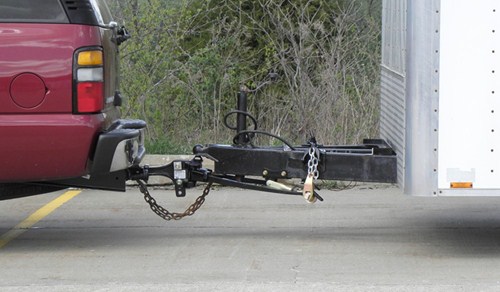
Credit: www.etrailer.com
Legal Regulations
Towing a trailer can be a fun and rewarding experience, but understanding the legal regulations is crucial. These rules ensure your safety and the safety of others on the road. Knowing the laws helps avoid fines and accidents. This section covers Licensing Requirements and Traffic Laws for trailer towing.
Licensing Requirements
Before towing a trailer, ensure you have the correct license. Different states and countries have varying requirements. Here are some general guidelines:
- Standard Driver’s License: Most small trailers can be towed with a standard driver’s license.
- Commercial Driver’s License (CDL): Larger trailers, especially those over 10,000 pounds, may require a CDL.
- Endorsements: Some regions need special endorsements on your license to tow specific types of trailers.
Check the table below for a quick reference:
| License Type | Trailer Weight | Additional Requirements |
|---|---|---|
| Standard Driver’s License | Up to 10,000 pounds | None |
| Commercial Driver’s License (CDL) | Over 10,000 pounds | May require endorsements |
Always check with your local DMV or equivalent authority for specific licensing requirements. Ignoring these rules can lead to serious consequences, including hefty fines and penalties. Stay informed and drive safely.
Traffic Laws
Understanding traffic laws for trailer towing is essential. Each state or country may have different rules. Here are some common laws to keep in mind:
- Speed Limits: Many areas have lower speed limits for vehicles towing trailers. Always check posted signs.
- Lane Restrictions: Some roads restrict trailers to certain lanes, especially on highways.
- Overtaking: Be cautious while overtaking other vehicles. Trailers need more time and space to pass safely.
Pay attention to these other regulations:
- Braking Systems: Trailers over a certain weight may need their own braking systems.
- Lighting: Ensure your trailer has the required lights, including brake lights and turn signals.
- Weight Distribution: Properly distribute the weight in your trailer to avoid swaying and ensure stability.
Refer to this quick guide for common traffic laws:
| Law | Requirement |
|---|---|
| Speed Limit | Varies by state, often lower than regular limits |
| Lane Restrictions | Often limited to right lanes or designated lanes |
| Braking Systems | Required for trailers over a certain weight |
| Lighting | Brake lights, turn signals, and reflectors required |
Abiding by traffic laws ensures a safe towing experience. Always be aware of local regulations and update yourself regularly.
Troubleshooting Common Issues
Towing a trailer can be a challenging task. Even experienced drivers face issues on the road. Knowing how to troubleshoot common problems is essential. It keeps you safe and prevents damage to your vehicle and trailer.
Swaying And Fish-tailing
One common issue in trailer towing is swaying and fish-tailing. This happens when your trailer moves side to side. It can be scary and dangerous. Here are some tips to troubleshoot this problem:
- Check the Load: Make sure the load is evenly distributed. Uneven loads can cause swaying.
- Adjust the Speed: Slow down. High speeds increase the chance of swaying.
- Use a Sway Control Device: These devices help control side-to-side movement.
- Check Tire Pressure: Low tire pressure can cause instability. Ensure all tires are properly inflated.
If you still face swaying, consider the following:
| Possible Cause | Solution |
|---|---|
| Incorrect Weight Distribution | Rebalance the load. Place heavier items over the axles. |
| High Winds | Slow down and drive cautiously. High winds can push the trailer. |
| Improper Hitch Setup | Check and adjust the hitch. It should be the right height and tight. |
Jackknifing
Jackknifing occurs when the trailer and towing vehicle form a “V” shape. This can lead to accidents. Here’s how to avoid and troubleshoot jackknifing:
- Maintain a Safe Speed: Always drive at a speed that suits the road conditions.
- Brake Gently: Sudden braking can cause the trailer to push against the towing vehicle.
- Use Trailer Brakes: Ensure your trailer’s brakes are working properly.
- Keep a Safe Distance: Leave ample space between your vehicle and others.
If jackknifing happens, follow these steps:
- Ease Off the Brakes: Release the brakes to regain control.
- Steer Straight: Try to align the trailer with the towing vehicle.
- Check for Damage: After stopping, inspect both the vehicle and trailer for any damage.
Understanding these common issues and knowing how to handle them ensures a safe towing experience. Always stay vigilant and prepared on the road.
Advanced Towing Tips
Learning the art of trailer towing opens up a world of adventure. Whether you’re hauling a boat, camper, or cargo, mastering advanced towing tips enhances safety and efficiency. These tips ensure a smoother towing experience, even for seasoned drivers.
Backward Towing
Backward towing can be tricky. It demands precise control and awareness. Follow these tips to improve your backward towing skills:
- Always use your mirrors. They are essential for seeing behind the trailer.
- Take it slow. Moving slowly helps you make minor adjustments more easily.
- Practice makes perfect. Find an open space and practice backing up.
Here’s a table to help you understand the key points:
| Tip | Description |
|---|---|
| Use Mirrors | Always check your side mirrors for a clear view. |
| Go Slow | Slow movements prevent jerky motions and help control. |
| Practice | Frequent practice in safe areas builds confidence. |
Hauling Heavy Loads
Hauling heavy loads requires extra caution and preparation. Ensure your vehicle and trailer are ready for the task:
- Check your vehicle’s towing capacity. Overloading can damage the vehicle.
- Distribute weight evenly. Uneven loads cause instability and swaying.
- Use the right hitch. Ensure the hitch is suited for the load.
- Inspect the trailer. Check tires, brakes, and lights before every trip.
Follow these rules to maintain safety:
- Use proper tie-downs. Secure the load to prevent movement.
- Drive slower. Heavy loads affect stopping distances and handling.
- Plan your route. Avoid steep hills and sharp turns.
For a quick reference:
| Step | Action |
|---|---|
| 1 | Check towing capacity |
| 2 | Distribute weight evenly |
| 3 | Use the right hitch |
| 4 | Inspect the trailer |
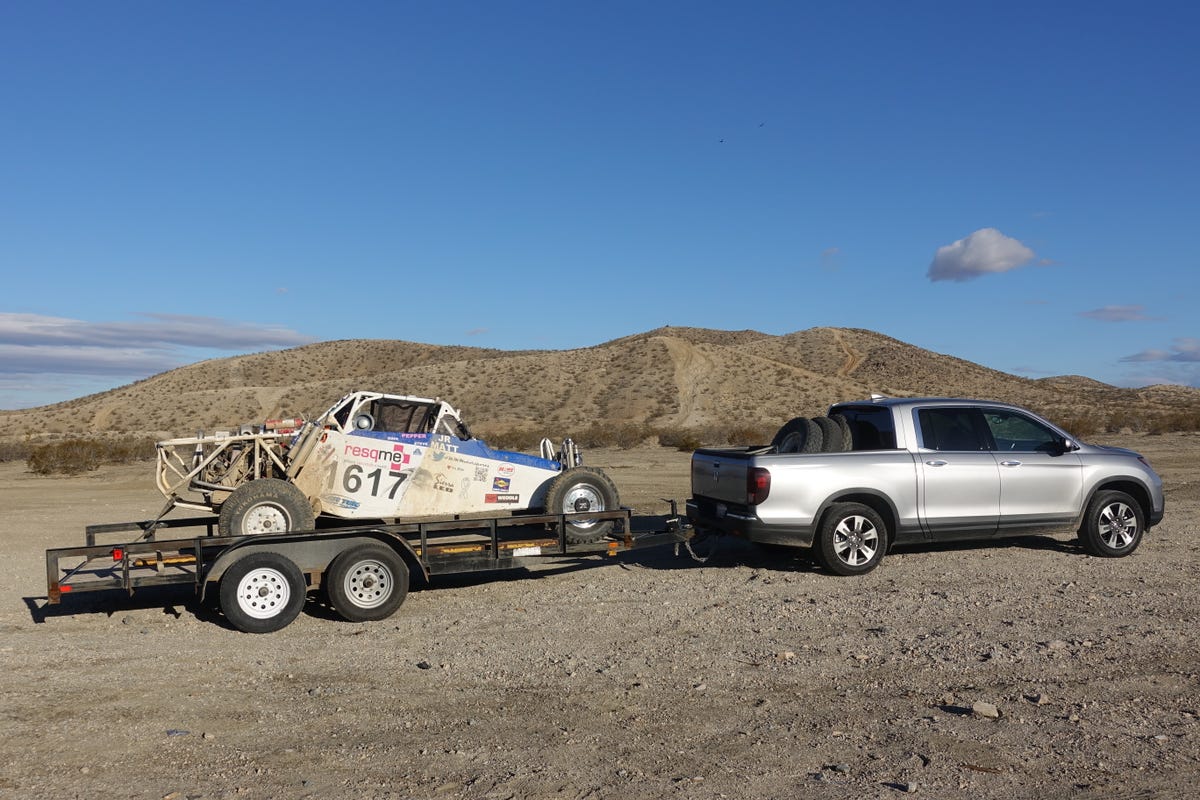
Credit: www.cnet.com
Frequently Asked Questions
What Do I Need To Know Before Pulling A Trailer?
Check your vehicle’s towing capacity. Ensure trailer lights and brakes work. Distribute weight evenly. Secure the load properly. Practice turning and reversing.
How Do You Tow A Trailer For Beginners?
Ensure your trailer is securely hitched. Check tire pressure and lights. Distribute weight evenly. Drive slowly and avoid sudden movements. Practice turning and reversing in a safe area.
What Is The Trailer Law In Texas?
In Texas, trailers must have proper lighting, reflectors, and brakes. Trailers over 4,500 pounds need brakes on all wheels.
What Is A Trailer Tow Package?
A trailer tow package includes essential components for towing, such as a hitch, wiring harness, and additional cooling systems. It enhances your vehicle’s towing capacity and safety.
Conclusion
Mastering trailer towing enhances safety and efficiency on the road. Follow these tips and practice regularly for best results. Make sure your vehicle and trailer are compatible and properly equipped. Always prioritize safety and stay informed about towing regulations. Happy towing and safe travels!

